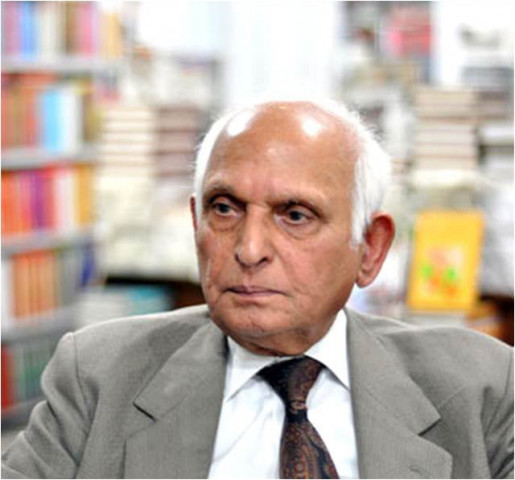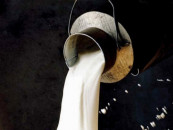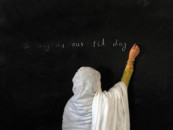'A new generation which writes in English has arrived and the era seems to be theirs'
Emerging Urdu writers need to revolt against the work of their predecessors to be able to achieve recognition

PHOTO: PUBLICITY
“Being nominated for the Man Booker International Prize in spite of being an Urdu writer is a novel experience,” said the famous writer, Intizar Husain, on day two of the fourth Karachi Literature Festival on February 16.
Two Indian scholars, Shamim Hanfi and Mehr Afshan Farooqi, and another eminent writer who was moderating the session, Asif Farrukhi, joined Husain in the discussion which covered a variety of subjects, ranging from a criticism of contemporary English writers to the future of Urdu literature.
“A new generation has arrived which writes in English and the era seems to be theirs,” said Husain, referring to Pakistani authors who have been noted world-over for their work. “I consider myself a villager who attempts to covey his memories, observations and environs through writing,” he added.
“But Kamila Shamsie pays respects to you and even Nadeem Aslam declared you ‘our [Vladimir] Nabokov’, about 15 years ago,” injected Farrukhi, adding that the new generation of writers may receive more admiration but they continue to be awestruck by Husain's work.

Farooqi pointed out that the literary landscape had changed over the past few years and English writers were receiving increasing global attention from international media and publishing houses. “However, the ideas of authors like Nadeem Aslam and Mohammed Hanif are not new to the Indo-Pak literary tradition," she explained. “They draw inspiration from Urdu while catering to a Western audience and a particular section of the Pakistani audience that does not relate to Urdu.”
Farooqi lamented the increasing divide between authors writing in local languages and those writing in English due to the increasing international prominence received by the latter. “There needs to be greater dialogue between the two,” she advised. “Platforms like the Karachi Literature Festival can serve as meeting points for writers from different linguistic backgrounds.”
Farooqi also mentioned that translating Urdu literature to English might be a necessity to be able to gauge the place of authors such as Intizar Husain in global literature. Husain, however, appeared to be optimistic about the future of Urdu literature and of that written in regional languages in India and Pakistan. "Emerging Urdu writers need to revolt against the work of their predecessors to be able to achieve recognition," he explained.



















COMMENTS
Comments are moderated and generally will be posted if they are on-topic and not abusive.
For more information, please see our Comments FAQ